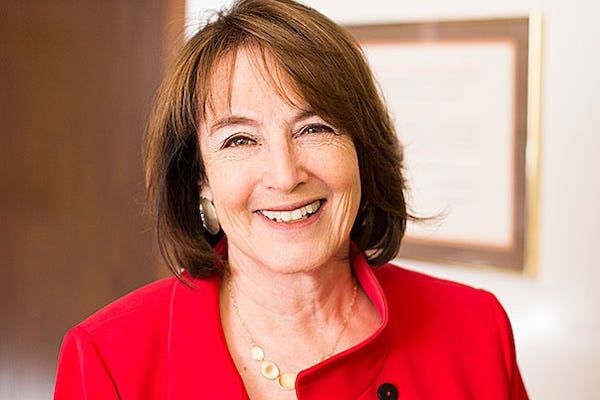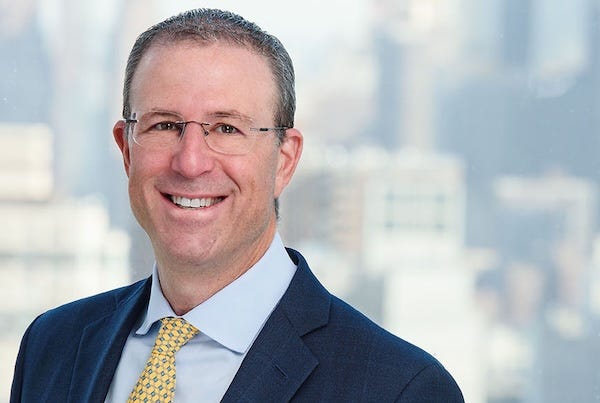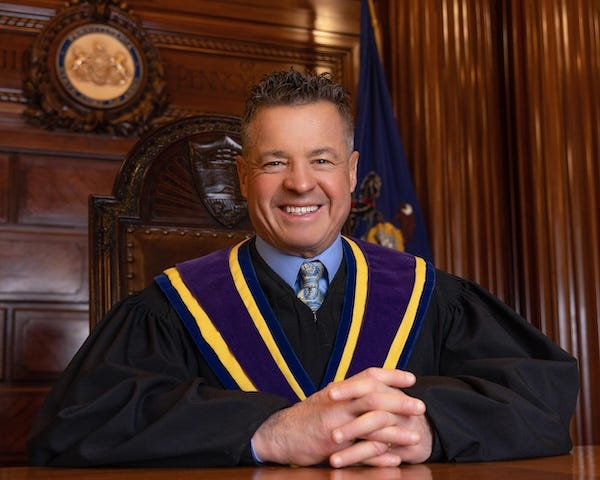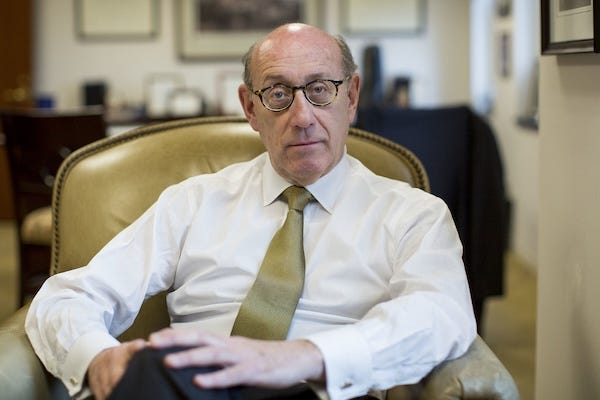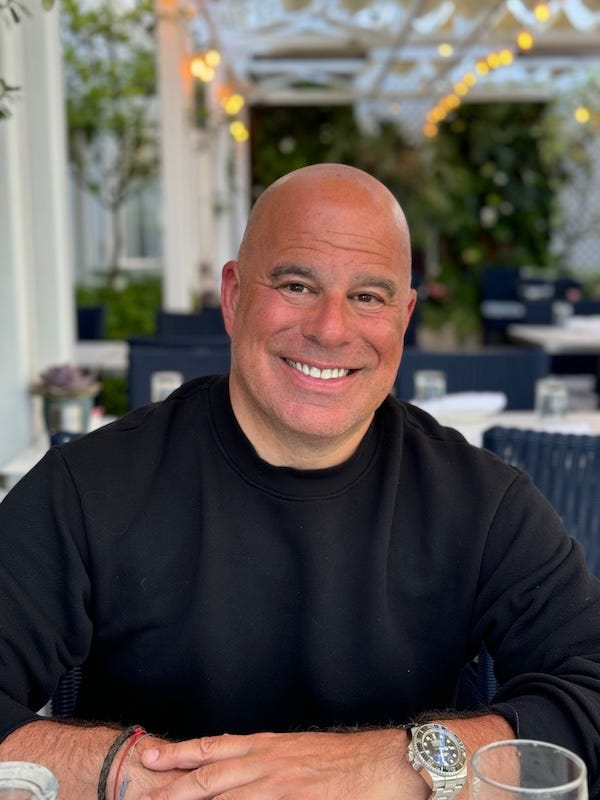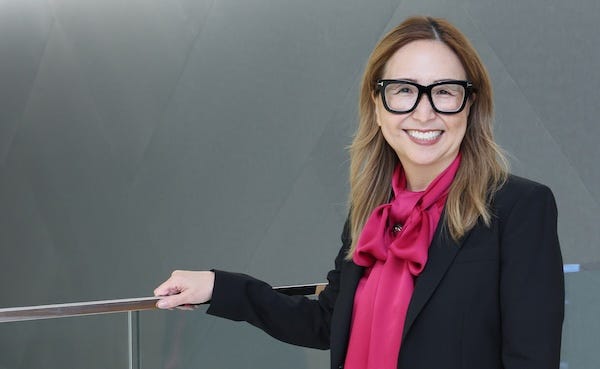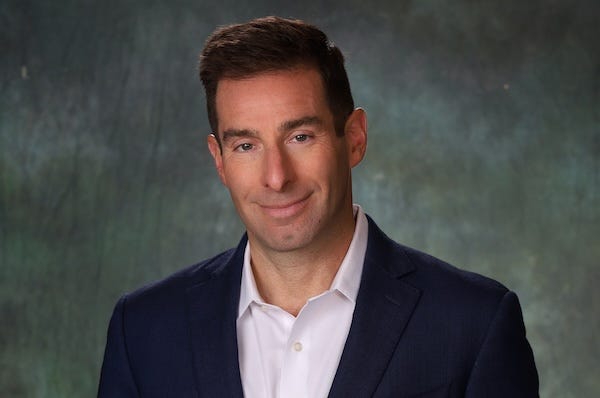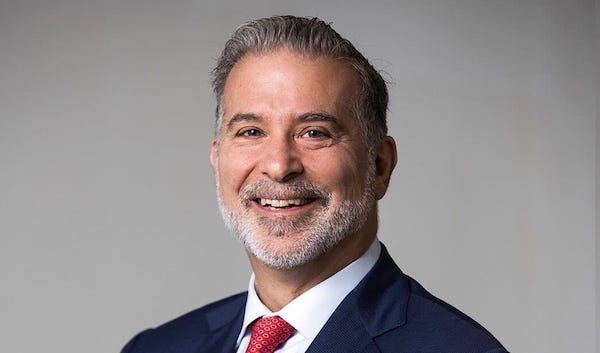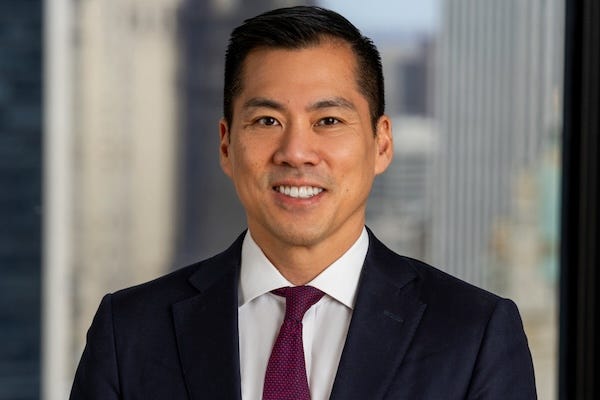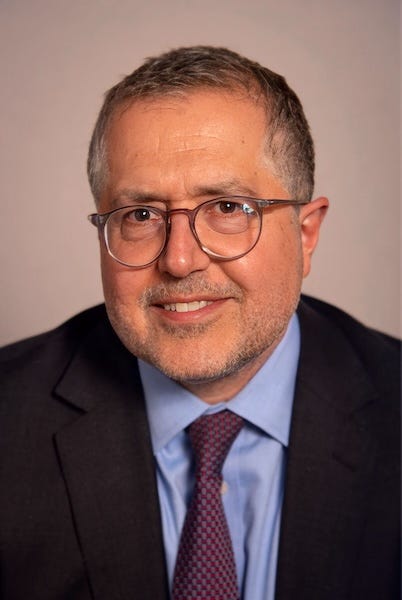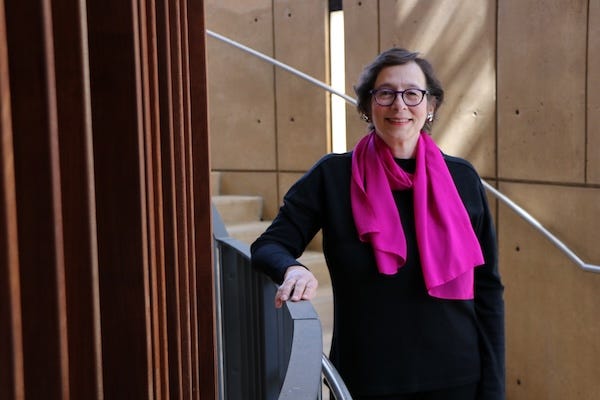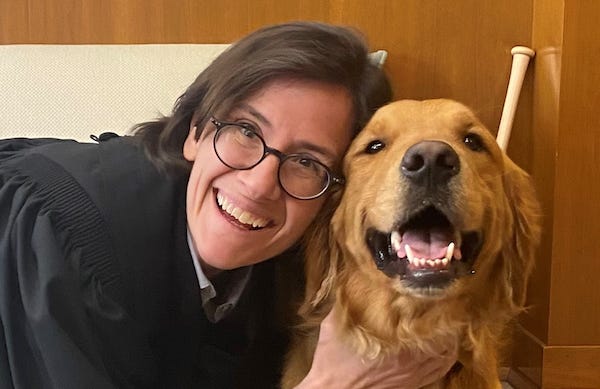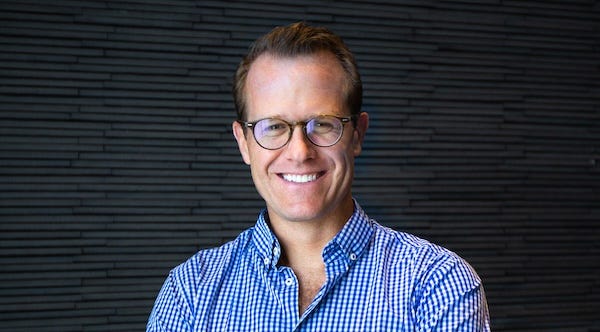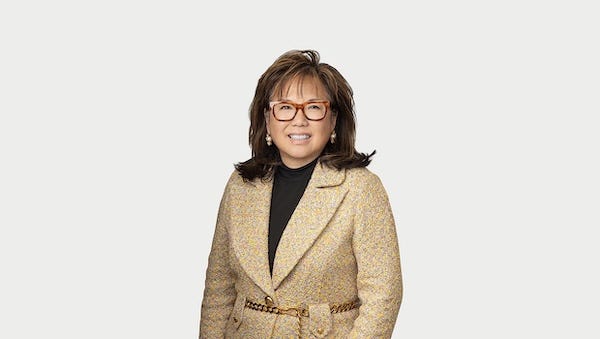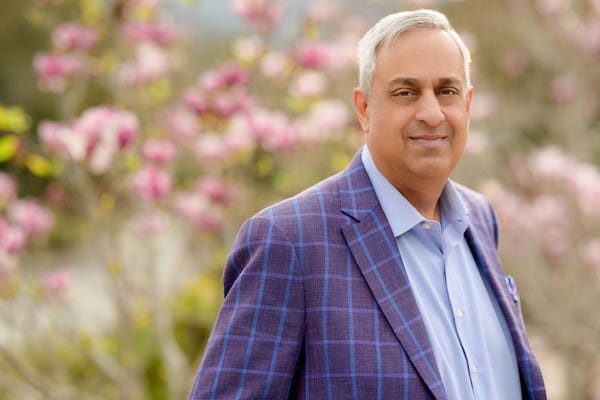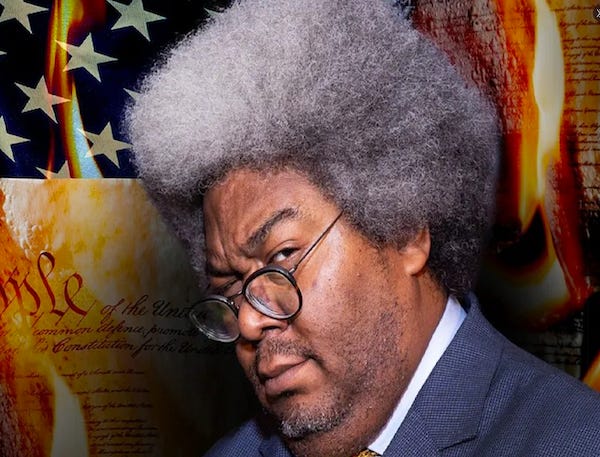Judging The Justice System In The Age Of Trump: Nancy Gertner
Description
Welcome to Original Jurisdiction, the latest legal publication by me, David Lat. You can learn more about Original Jurisdiction by reading its About page, and you can email me at davidlat@substack.com. This is a reader-supported publication; you can subscribe by clicking here.
How are the federal courts faring during these tumultuous times? I thought it would be worthwhile to discuss this important subject with a former federal judge: someone who understands the judicial role well but could speak more freely than a sitting judge, liberated from the strictures of the bench.
Meet Judge Nancy Gertner (Ret.), who served as a U.S. District Judge for the District of Massachusetts from 1994 until 2011. I knew that Judge Gertner would be a lively and insightful interviewee—based not only on her extensive commentary on recent events, reflected in media interviews and op-eds, but on my personal experience. During law school, I took a year-long course on federal sentencing with her, and she was one of my favorite professors.
When I was her student, we disagreed on a lot: I was severely conservative back then, and Judge Gertner was, well, not. But I always appreciated and enjoyed hearing her views—so it was a pleasure hearing them once again, some 25 years later, in what turned out to be an excellent conversation.
Show Notes:
* Nancy Gertner, author website
* Nancy Gertner bio, Harvard Law School
* In Defense of Women: Memoirs of an Unrepentant Advocate, Amazon
Prefer reading to listening? For paid subscribers, a transcript of the entire episode appears below.
Sponsored by:
NexFirm helps Biglaw attorneys become founding partners. To learn more about how NexFirm can help you launch your firm, call 212-292-1000 or email careerdevelopment@nexfirm.com.
Three quick notes about this transcript. First, it has been cleaned up from the audio in ways that don’t alter substance—e.g., by deleting verbal filler or adding a word here or there to clarify meaning. Second, my interviewee has not reviewed this transcript, and any errors are mine. Third, because of length constraints, this newsletter may be truncated in email; to view the entire post, simply click on “View entire message” in your email app.
David Lat: Welcome to the Original Jurisdiction podcast. I’m your host, David Lat, author of a Substack newsletter about law and the legal profession also named Original Jurisdiction, which you can read and subscribe to at davidlat.substack.com. You’re listening to the eighty-fifth episode of this podcast, recorded on Monday, November 3.
Thanks to this podcast’s sponsor, NexFirm. NexFirm helps Biglaw attorneys become founding partners. To learn more about how NexFirm can help you launch your firm, call 212-292-1000 or email careerdevelopment@nexfirm.com. Want to know who the guest will be for the next Original Jurisdiction podcast? Follow NexFirm on LinkedIn for a preview.
Many of my guests have been friends of mine for a long time—and that’s the case for today’s. I’ve known Judge Nancy Gertner for more than 25 years, dating back to when I took a full-year course on federal sentencing from her and the late Professor Dan Freed at Yale Law School. She was a great teacher, and although we didn’t always agree—she was a professor who let students have their own opinions—I always admired her intellect and appreciated her insights.
Judge Gertner is herself a graduate of Yale Law School—where she met, among other future luminaries, Bill and Hillary Clinton. After a fascinating career in private practice as a litigator and trial lawyer handling an incredibly diverse array of cases, Judge Gertner was appointed to serve as a U.S. District Judge for the District of Massachusetts in 1994, by President Clinton. She retired from the bench in 2011, but she is definitely not retired: she writes opinion pieces for outlets such as The New York Times and The Boston Globe, litigates and consults on cases, and trains judges and litigators. She’s also working on a book called Incomplete Sentences, telling the stories of the people she sentenced over 17 years on the bench. Her autobiography, In Defense of Women: Memoirs of an Unrepentant Advocate, was published in 2011. Without further ado, here’s my conversation with Judge Nancy Gertner.
Judge, thank you so much for joining me.
Nancy Gertner: Thank you for inviting me. This is wonderful.
DL: So it’s funny: I’ve been wanting to have you on this podcast in a sense before it existed, because you and I worked on a podcast pilot. It ended up not getting picked up, but perhaps they have some regrets over that, because legal issues have just blown up since then.
NG: I remember that. I think it was just a question of scheduling, and it was before Trump, so we were talking about much more sophisticated, superficial things, as opposed to the rule of law and the demise of the Constitution.
DL: And we will get to those topics. But to start off my podcast in the traditional way, let’s go back to the beginning. I believe we are both native New Yorkers?
NG: Yes, that’s right. I was born on the Lower East Side of Manhattan, in an apartment that I think now is a tenement museum, and then we moved to Flushing, Queens, where I lived into my early 20s.
DL: So it’s interesting—I actually spent some time as a child in that area. What was your upbringing like? What did your parents do?
NG: My father owned a linoleum store, or as we used to call it, “tile,” and my mother was a homemaker. My mother worked at home. We were lower class on the Lower East Side and maybe made it to lower-middle. My parents were very conservative, in the sense they didn’t know exactly what to do with a girl who was a bit of a radical. Neither I nor my sister was precisely what they anticipated. So I got to Barnard for college only because my sister had a conniption fit when he wouldn’t pay for college for her—she’s my older sister—he was not about to pay for college. If we were boys, we would’ve had college paid for.
In a sense, they skipped a generation. They were actually much more traditional than their peers were. My father was Orthodox when he grew up; my mother was somewhat Orthodox Jewish. My father couldn’t speak English until the second grade. So they came from a very insular environment, and in one sense, he escaped that environment when he wanted to play ball on Saturdays. So that was actually the motivation for moving to Queens: to get away from the Lower East Side, where everyone would know that he wasn’t in temple on Saturday. We used to have interesting discussions, where I’d say to him that my rebellion was a version of his: he didn’t want to go to temple on Saturdays, and I was marching against the war. He didn’t see the equivalence, but somehow I did.
There’s actually a funny story to tell about sort of exactly the distance between how I was raised and my life. After I graduated from Yale Law School, with all sorts of honors and stuff, and was on my way to clerk for a judge, my mother and I had this huge fight in the kitchen of our apartment. What was the fight about? Sadie wanted me to take the Triborough Bridge toll taker’s test, “just in case.” “You never know,” she said. I couldn’t persuade her that it really wasn’t necessary. She passed away before I became a judge, and I told this story at my swearing-in, and I said that she just didn’t understand. I said, “Now I have to talk to my mother for a minute; forgive me for a moment.” And I looked up at the rafters and I said, “Ma, at last: a government job!” So that is sort of the measure of where I started. My mother didn’t finish high school, my father had maybe a semester of college—but that wasn’t what girls did.
DL: So were you then a first-generation professional or a first-generation college graduate?
NG: Both—my sister and I were both, first-generation college graduates and first-generation professionals. When people talk about Jewish backgrounds, they’re very different from one another, and since my grandparents came from Eastern European shtetls, it’s not clear to me that they—except for one grandfather—were even literate. So it was a very different background.
DL: You mentioned that you did go to Yale Law School, and of course we connected there years later, when I was your student. But what led you to go to law school in the first place? Clearly your parents were not encouraging your professional ambitions.
NG: One is, I love to speak. My husband kids me now and says that I’ve never met a microphone I didn’t like. I had thought for a moment of acting—musical comedy, in fact. But it was 1967, and the anti-war movement, a nascent women’s movement, and the civil rights movement were all rising around me, and I wanted to be in the world. And the other thing was that I didn’t want to do anything that women do. Actually, musical comedy was something that would’ve been okay and normal for women, but I didn’t want to do anything that women typically do. So that was the choice

